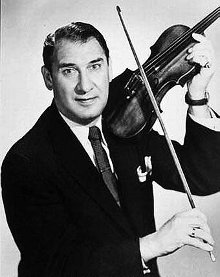A Quote by Frederic Bastiat
If philanthropy is not voluntary, it destroys liberty and justice. The law can give nothing that has not first been taken from its owner.
Related Quotes
The law is the collective organization of the individual's right to lawful defense of his life, liberty and property. When it is used for anything else, no matter how noble the cause, it becomes perverted and justice is weakened. Thus, the law has become perverted by stupid greed and false philanthropy.
Law is justice. And it is under the law of justice - under the reign of right; under the influence of liberty, safety, stability, and responsibility - that every person will attain his real worth and the true dignity of his being. It is only under this law of justice that mankind will achieve - slowly, no doubt, but certainly - God's design for the orderly and peaceful progress of humanity.
Give me the steady, uniform, unshaken security of constitutional freedom. Give me the right to be tried by a jury of my own neighbors, and to be taxed by my own representatives only. What will become of the law and courts of justice without this? The shadow may remain, but the substance will be gone. I would die to preserve the law upon a solid foundation; but take away liberty, and the foundation is destroyed.
In any society, order is the first need of all. Liberty and justice may be established only after order is tolerably secure. But the libertarians give primacy to an abstract liberty. Conservatives, knowing that "liberty inheres in some sensible object," are aware that true freedom can be found only within the framework of a social order, such as the constitutional order of these United States. In exalting an absolute and indefinable "liberty" at the expense of order, the libertarians imperil the very freedoms they praise.
Among the natural rights of the colonists are these: first, a right to life; second, to liberty; third, to property; together with the right to support and defend them in the best manner they can. These are evident branches of ... the duty of self-preservation, commonly called the first law of nature. All men have a right to remain in a state of nature as long as they please; and in case of intolerable oppression, civil or religious, to leave the society they belong to, and ernter into another.... Now what liberty can there be where property is taken away without consent?
He hadn’t been her first lover or the first boy to give her an orgasm. He hadn’t even been the first she’d loved. He’d been the first to turn her inside out with something as simple as a smile. The first to make her doubt herself. He’d taken her deeper than anyone ever had, and yet she hadn’t drowned.



































